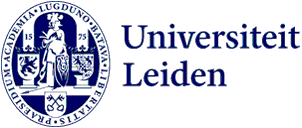
Safeguarding the independence of international courts and tribunals while ensuring oversight over taxpayers’ money
International courts and tribunals depend on state funding, creating a potential risk of undue state interference in judicial processes. In her doctoral thesis, Maria Manolecsu explores mechanisms that safeguard judicial independence, ensuring that courts can adjudicate without external pressure or interference.
International courts and tribunals (ICTs) must answer to governments about how they use public money. This situation could lead to countries interfering with the courts’ work, which might affect the judges’ ability to make fair decisions.
On Friday 14 February, Maria Manolescu will defend her doctoral thesis on this topic: Balancing Powers: Safeguarding Judicial Independence and Promoting Accountability of International Courts through Financial Governance.
Maria Manolescu: 'Financial governance is not a matter of euros and cents. It is about balancing, at times competing, seemingly opposite, acts of power and control.'

Comparison of budget processes
For her research, Maria Manolescu analysed the financial governance of seven different international courts and compared the different budget related processes. She identified lessons learnt and best practices. Her research found important differences in approaches.
For example, the International Tribunal for the Law of the Sea (ITLOS) has a relatively simple budget adoption process: the Tribunal proposes a budget which the Meeting of the States Parties subsequently assesses and decides upon.
The International Criminal Court (ICC), on the other hand, has a much more complex and lengthy process with various assessment levels, including a technical advisory body, working groups of states and political discussions. This lengthier process can lead to inefficiency, micro-management, delays, and ultimately increased costs.
Judicial independence and financial control
Manolescu observed that state control over the funding of ICTs could potentially be used as a tool to influence international courts. There are past examples where funding decisions were seemingly made based on political considerations to the detriment of judicial independence.
Accountability
At the same time, Maria acknowledges the need for accountability of courts in financial governance. While ICTs must retain their judicial independence, this should not be used as an excuse to avoid financial supervision. Responsible financial management is essential to ensure the credibility of these institutions. It is therefore essential that the right balance is found.
Main recommendations
Maria Manolescu has a number of important recommendations to improve the financial governance of international courts. Her main recommendations are:
-
Responsible budget supervision by states
As the founders and funders of international courts, states must ensure fair and effective financial governance. To achieve this, they must operate in line with their own rules and avoid using their budgetary powers to influence the courts’ decision-making. It is also the responsibility of states to amend the system when and if it needs improvements.
-
Recognition of the unique and independent nature of courts
International courts must have greater autonomy than other international organisations. Budget decisions should not undermine their judicial independence, and the specific nature of courts should be considered, especially where their budget is considered as part of the budget of larger institutions such as of the UN.
-
Balancing accountability and independence
While it is essential that courts are accountable to states for how they manage taxpayers’ money, oversight mechanisms should be tailored to the specific nature of the court, and the different types of activities that take place within a court, to prevent undue interference. Manolescu recommends limiting financial review bodies to technical analyses of budget proposals and not allowing them to influence judicial decisions.
A passion for institutional law
Niels Blokker, Professor of International Institutional Law, inspired Maria Manolescu’s curiosity about the functioning of international courts and their financial governance. While working at the ICC in The Hague after graduating from her master’s, she could observe the various ways in which the financial governance of international courts was set up, and noted the absence of research in this field.
Her findings highlight the complex relationship between states and courts and underline the need for a balanced approach to financial management – an approach that ensures accountability, while not compromising judicial independence.
